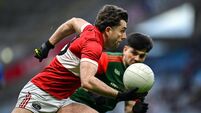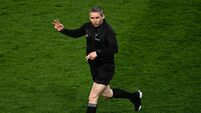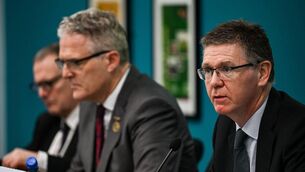Goliath clinical enough to send Borris-Ileigh home on their shields

There may be more vivid incarnations of optimism than a ticket tout prowling Gill’s Corner and environs for spare tickets ahead of the All-Ireland club final, but none come immediately to mind.
Markers of an event on a smaller scale than those of high summer were evident even on the approach to Croke Park, from the light-touch security on Jones’ Road to the (relative) calm of the hotel across the road from the stadium. If that tout was able to turn a profit on Borris-Ileigh versus Ballyhale Shamrocks (attended by 25,000-odd spectators) he should stand in the election for the Water Into Wine Party.














